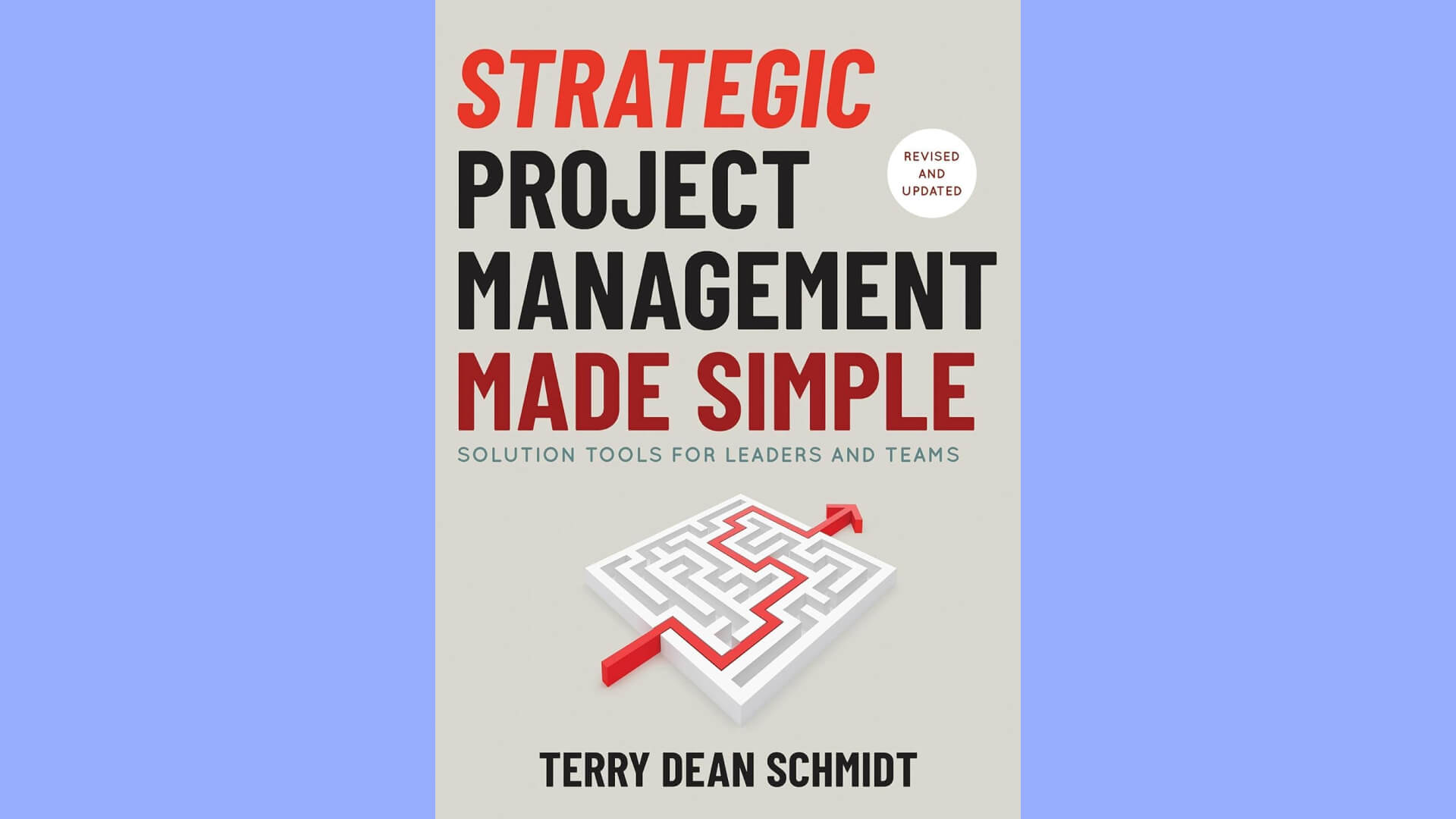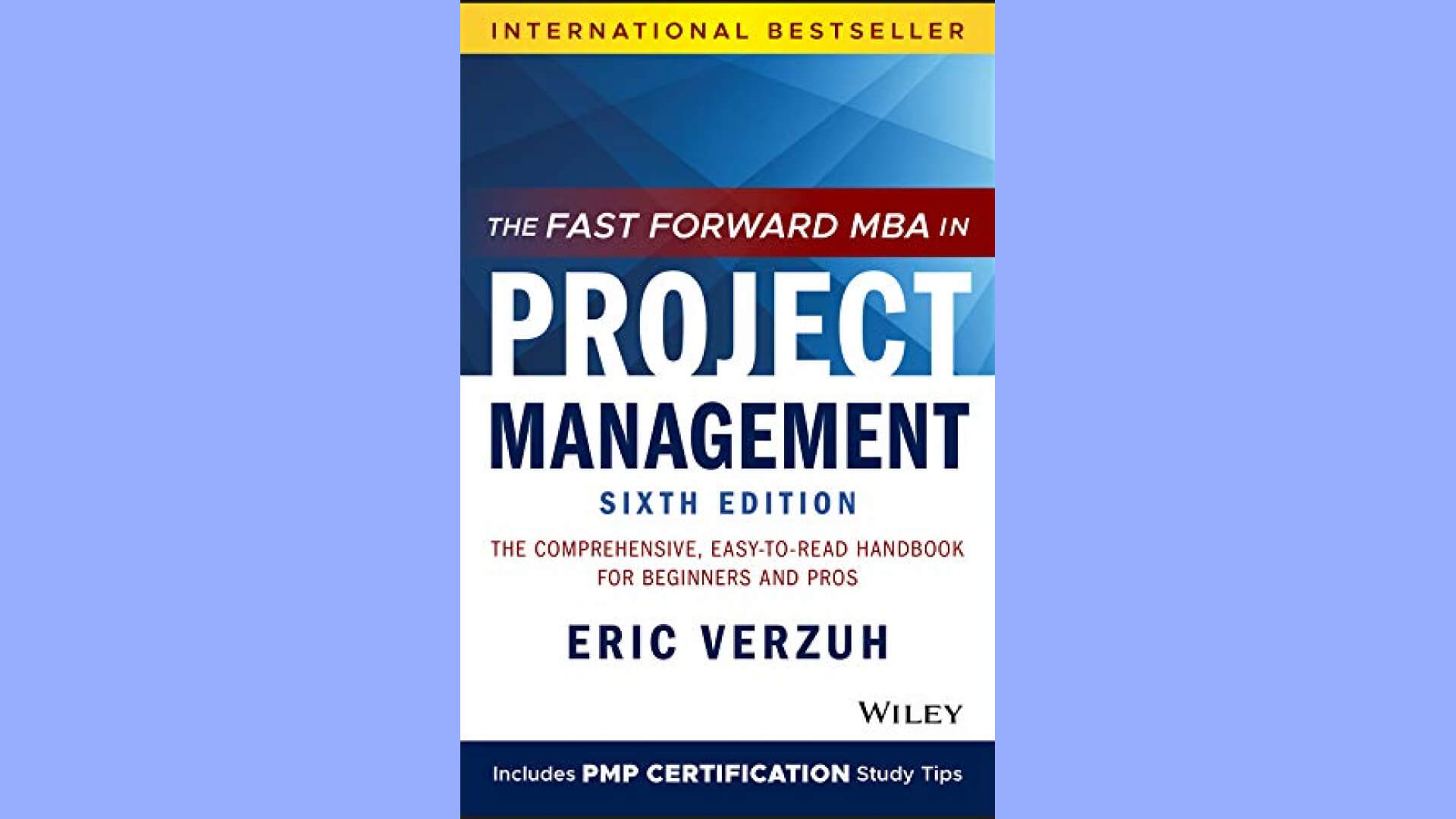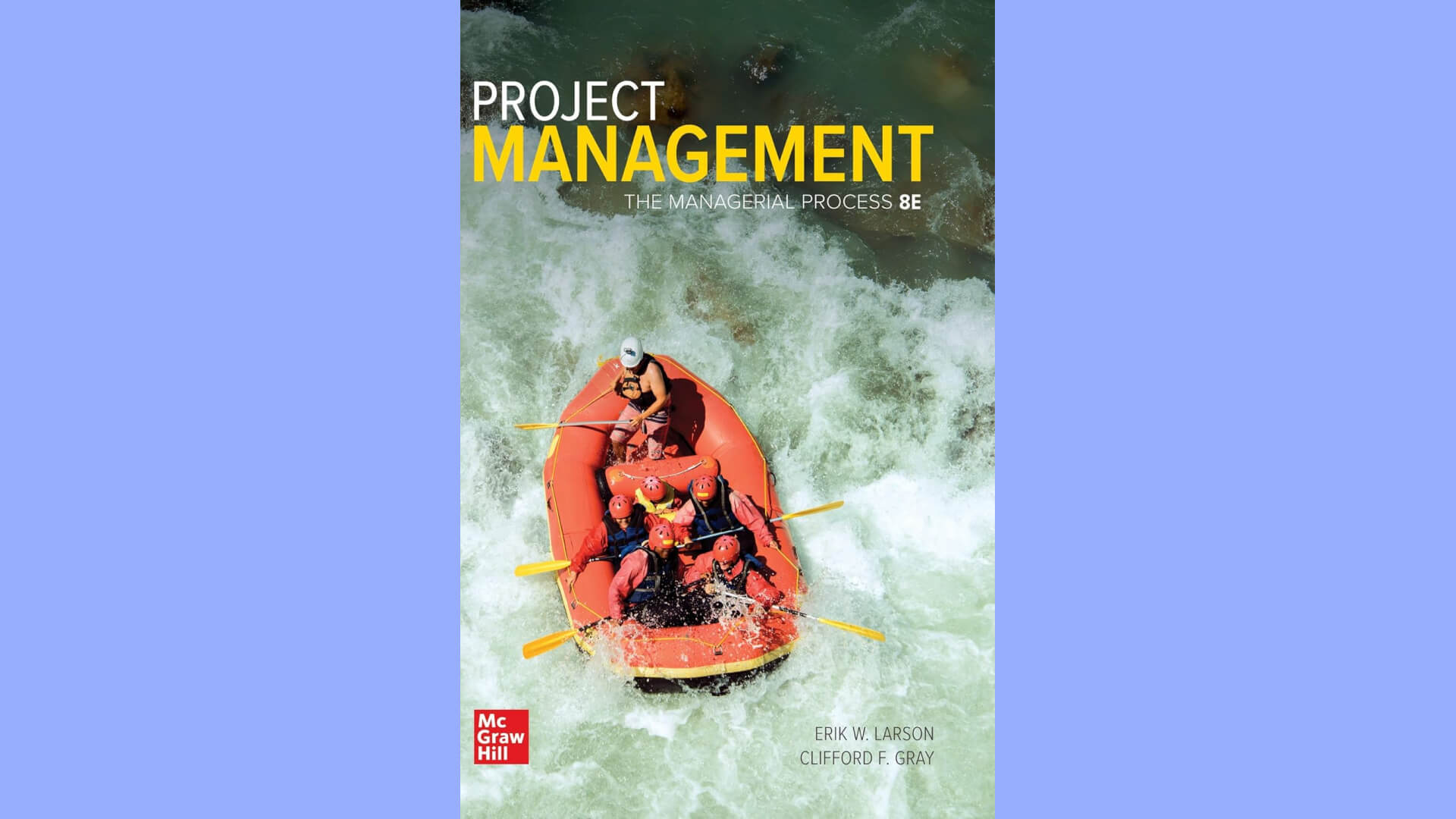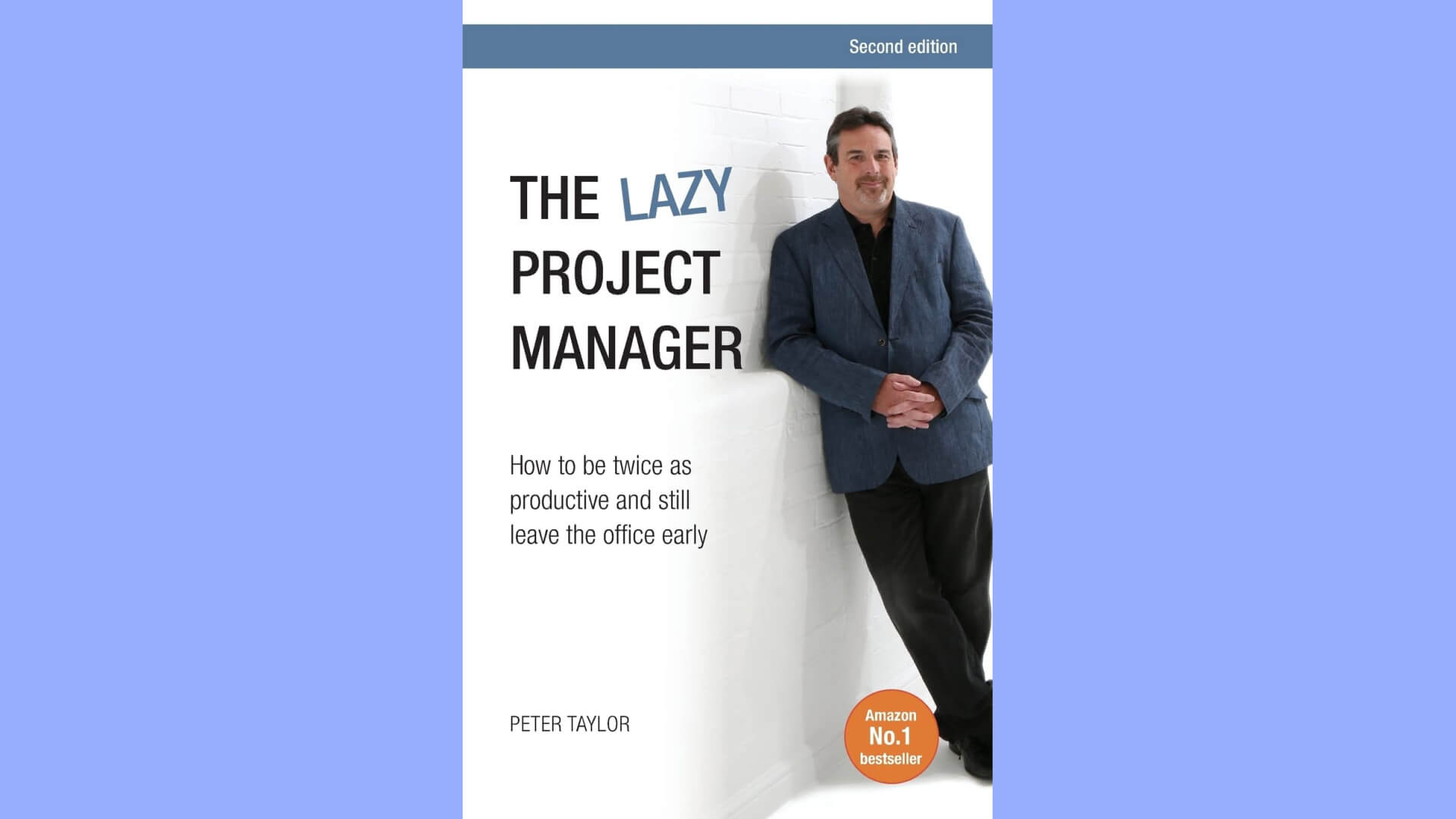Project management books are like lighthouses for navigating the complex seas of organizational leadership. They illuminate proven paths through challenges and reveal hidden shortcuts that took others years to discover. This guide cuts through the noise to spotlight the essential reads that will transform how you lead projects in 2025.
In this article, we’ll explore the most impactful project management books that deliver practical frameworks you can implement immediately. From timeless classics to cutting-edge approaches addressing AI and remote work, these resources pair perfectly with digital platforms like monday work management to turn theory into tangible results.
Try monday work managementWhy leaders still rely on project management books
Project management books remain essential resources for leaders navigating complex organizational challenges. Despite the digital revolution, physical books provide comprehensive frameworks and methodologies that have stood the test of time. These foundational texts establish a common language that digital platforms implement in practical workflows.
The project management profession continues to grow rapidly,withthe U.S. Bureau of Labor Statistics projecting job growth at 7% by 2033, making books on project management more valuable than ever. Leaders find that the best project management books offer insights that quick online resources simply cannot match.
Books for project managers offer several key benefits:
- Strategic frameworks: Books provide complete systems rather than fragmented tactics
- Proven methodologies: They document approaches tested across thousands of organizations
- Leadership development: The best books for project management focus on people skills, not just processes
- Comprehensive knowledge: Top rated project management books cover both theory and practical application
Why books complement digital tools
Project management books and digital platforms serve complementary purposes. Books provide the strategic frameworks, while platforms like monday work management implement these concepts through customizable workflows and visualizations.
7 essential titles that go beyond basics
These recommended project management books were selected for their relevance to modern leadership challenges in 2025 and beyond. Each project management book offers unique insights that help leaders connect execution to strategic outcomes.
1. PMBOK guide

The Project Management Body of Knowledge (PMBOK) Guide remains the definitive industry standard for project management professionals. Published by the Project Management Institute (PMI), this comprehensive project management textbook establishes the fundamental vocabulary and frameworks that unite the profession globally.
The PMBOK serves as both reference manual and strategic guide. It breaks down project management into knowledge areas including scope, schedule, cost, quality, resources, communications, risk, procurement, and stakeholder management. For leaders, its greatest value lies in providing structured approaches to complex initiatives.
2. Strategic project management made simple

Terry Schmidt’s book transforms complex strategic thinking into practical frameworks accessible to leaders at all levels. The book’s Logical Framework approach helps bridge the critical gap between organizational strategy and project execution.
Schmidt’s methodology helps leaders ask four critical questions: What are we trying to accomplish? How will we measure success? What other conditions must exist? How do we get there? This structured approach ensures projects align with strategic objectives rather than becoming disconnected from organizational goals.
3. The fast-forward MBA in project management

Eric Verzuh’s practical guide distills complex project management concepts into accessible frameworks that non-specialists can immediately apply. This project manager book excels at addressing the challenges of cross-departmental collaboration.
The book provides ready-to-use templates for project charters, communication plans, risk registers, and other essential tools. Its straightforward approach to stakeholder management helps leaders navigate organizational politics and secure buy-in for critical initiatives.
4. Project management for researchers

This specialized resource addresses the unique challenges of managing research and innovation initiatives. Unlike traditional projects with well-defined deliverables, research projects involve significant uncertainty and evolving objectives.
Leaders overseeing R&D, product innovation, or academic research will find valuable guidance on structuring exploratory work without stifling creativity. The book offers specific approaches for documenting experiments, managing intellectual property, and translating theoretical findings into practical applications.
5. Project management: a socio-technical approach

This forward-thinking book on project management addresses the critical intersection of human factors and technology in modern project environments. It explores how social dynamics, organizational culture, and technical systems interact to influence project outcomes.
The book offers frameworks for balancing technical requirements with human needs, particularly relevant in today’s remote and hybrid work environments. Its approaches to change management, team dynamics, and stakeholder engagement acknowledge the complex social factors that often determine project success.
6. The lazy project manager

Peter Taylor’s counterintuitive approach teaches leaders how to maximize output while preserving personal bandwidth. The book introduces the concept of “productive laziness”—focusing effort where it delivers the greatest impact and eliminating unnecessary work.
The book applies the Pareto principle (80/20 rule) to project management, showing how leaders can identify the vital 20% of activities that drive 80% of results. Its frameworks for prioritization, delegation, and focused execution help executives work smarter rather than harder.
7. Drive (by Daniel H. Pink)

While not explicitly a project management for beginners book, Daniel Pink’s exploration of motivation is essential reading for anyone leading project teams. Pink’s research reveals that autonomy, mastery, and purpose drive performance far more effectively than traditional approaches.
Leaders will find practical frameworks for creating environments where teams thrive. Pink’s insights on how purpose connects individual contributions to larger meaning helps leaders articulate compelling project visions. For executives seeking to build high-performing teams, these motivation principles are foundational.
Where do global standards like PMBOK fit today
Global standards like the PMBOK Guide continue to provide valuable structure in today’s rapidly evolving project landscape. These frameworks offer consistent terminology and approaches that enable collaboration across teams, departments, and organizations.
Modern leaders recognize that different projects require different approaches. Rather than rigidly applying a single methodology, effective organizations select the right framework for each initiative based on factors like uncertainty, stakeholder involvement, and delivery timelines.
The value of certification in these standards remains strong, particularly for career advancement. However, the emphasis has shifted from strict adherence to principles toward thoughtful adaptation of frameworks to specific contexts. Frederick Brooks, author of “The Mythical Man-Month,” provocatively noted that “if a 200-man project has 25 managers who are the most competent and experienced programmers, fire the 175 troops”, highlighting the importance of skilled leadership.
| Standard/Framework | Best for | Key strengths | Limitations |
|---|---|---|---|
| PMBOK | Enterprise projects, regulated industries | Comprehensive, widely recognized | Can be process-heavy |
| Agile approaches | Fast-changing environments, software | Adaptability, customer focus | Less structure for complex dependencies |
| Hybrid frameworks | Most modern organizations | Flexibility, customization | Requires experienced judgment |
monday work management supports all these frameworks through customizable workflows that adapt to your methodology of choice. Teams can implement waterfall processes with detailed Gantt charts , agile approaches with Kanban boards, or hybrid models that combine elements of both.
Try monday work managementHow digital and AI trends are shaping project management literature
The project management literature is rapidly evolving to address emerging technologies and their impact on how work gets done. Recent project management books increasingly focus on digital transformation, artificial intelligence, and the changing nature of teams.
How are today’s project leaders balancing technological capabilities with human factors? The latest books about project management emphasize that technology should augment human judgment rather than replace it. Books now address how AI can handle routine tasks while humans focus on complex decision-making and stakeholder management.
1. AI and automation in modern PM books
Recent books of project management extensively cover how AI transforms planning, resource optimization, and risk management . Authors explore how machine learning algorithms can analyze historical project data to improve estimation accuracy and identify potential risks before they materialize.
Books like “Project Management in the AI Age” provide frameworks for integrating AI capabilities into project workflows. They address practical questions about which tasks to automate and when human judgment should override algorithmic recommendations. monday work management’s AI capabilities align with these approaches, offering features that augment human decision-making.
[IMAGE: Screenshot showing monday work management’s AI-powered risk detection analyzing project data to identify potential issues before they impact timelines]
2. Building future-ready teams through upskilling
Project management books for beginners increasingly focus on developing adaptable, tech-savvy teams capable of thriving in rapidly changing environments. Books address the leadership approaches needed to guide teams through digital transformation, emphasizing continuous learning and cross-functional collaboration.
Recent titles provide frameworks for identifying skill gaps, creating learning pathways, and fostering environments where experimentation is encouraged. They address challenges like resistance to change and digital literacy barriers. monday work management supports this learning journey through intuitive interfaces that make advanced capabilities accessible to team members.
Are there free or open-source project management textbooks
For cost-conscious learners, several high-quality free and open-source project management resources are available. These materials provide accessible entry points to project management concepts without the investment required for commercial books.
The open educational resources movement has produced several excellent project work books that rival commercial offerings in quality. While these resources may not always reflect the very latest trends, they provide solid foundations in core principles that remain relevant regardless of technological changes.
Access to quality project management knowledge shouldn’t require a significant investment. Here are several valuable free and open-source resources that deliver professional-grade insights without the price tag:
- Open textbook options: “Project Management for Instructional Designers” and “Project Management from Simple to Complex” provide comprehensive introductions
- Professional association resources: PMI offers free articles, white papers, and case studies through its Knowledge Center for members
- University-published materials: MIT OpenCourseWare and Open University offer free project management course materials
- Government resources: The U.S. Government’s Project Management Center of Excellence provides free guides and templates
How to connect the theory with real-world tools
The implementation gap between theoretical knowledge and practical application represents one of the greatest challenges in project management. Leaders often struggle to translate concepts from books into actionable workflows. Digital platforms like monday work management bridge this gap by providing structured environments where theoretical frameworks become concrete workflows.
How can you move from understanding project management principles to actually applying them? The key lies in connecting conceptual models to specific processes, templates, and automation rules. Rather than attempting to implement entire methodologies at once, successful organizations identify high-value processes to transform first.
1. Synchronizing books with monday work management
monday work management’s flexible structure allows teams to implement frameworks directly from project management literature. For example, the PMBOK Guide’s knowledge areas can be set up as interconnected boards that track scope, schedule, cost, quality, and other dimensions of project performance.
Teams can create visual representations of concepts like the Iron Triangle (scope, time, cost) through custom dashboards that track these dimensions in real time. Risk registers described in great project management books can be implemented as dedicated boards with automated notifications when risk levels change.
Try monday work management2. Turning insights into automated workflows
monday work management’s automation capabilities transform theoretical processes into self-executing workflows. For instance, the stage-gate approach described in many product development books can be implemented as status columns with automations that notify stakeholders when projects advance to new stages.
The platform allows teams to codify decision frameworks from project management literature into practical tools. For example, prioritization matrices described in good project management books can be implemented as custom boards that automatically calculate priority scores based on multiple factors.
Get started with scalable strategies for your team
Combining the strategic insights from the best books for project management with the practical capabilities of monday work management creates a powerful foundation for organizational success. The books provide the conceptual frameworks, while the platform delivers the implementation through customizable workflows and visualizations.
What steps should you take to begin this journey?
- Start by identifying a specific project management challenge your organization faces, such as resource allocation or risk management.
- Select a relevant book on project management that addresses this challenge
- Extract the key frameworks
- Implement them in monday work management.
monday work management’s flexibility allows you to start small and scale gradually. Begin with a single team or project type, refine your approach based on results, then expand across the organization. The platform’s intuitive interface ensures team members can quickly adopt new processes, while its automation capabilities ensure consistent execution.
FAQs
Which project management books help beginners transition into leadership roles?
Books specifically designed for new leaders include “The Fast-Forward MBA in Project Management” and “Strategic Project Management Made Simple,” both offering accessible frameworks that bridge tactical execution and strategic thinking.
Are there specialized project management books for IT departments or large-scale programs?
Yes, specialized resources like “Program Management for Improved Business Results” and “The IT Project Management Handbook” address enterprise-scale technology initiatives with frameworks for system deployments and ongoing maintenance.
How do recommended project management books address modern AI capabilities?
Recent editions increasingly incorporate AI concepts, with titles like “Project Management in the AI Age” exploring how artificial intelligence transforms planning, resource allocation, and risk management in contemporary projects.
What is the difference between project management books and program management books?
Project management books focus on delivering specific initiatives with defined scope and timeline, while program management books address coordinating multiple related projects to achieve broader organizational objectives and benefits.
How can I apply project management book concepts in a remote or hybrid work environment?
Modern project management books increasingly include sections on virtual leadership, with practical frameworks for maintaining team cohesion, communication protocols, and collaborative planning in distributed environments.
Which project management books best explain agile methodologies for non-software teams?
Books like “Agile Project Management for Non-Software Teams” and “Adaptive Project Framework” effectively translate agile principles for marketing, operations, and other business functions beyond traditional software development.
